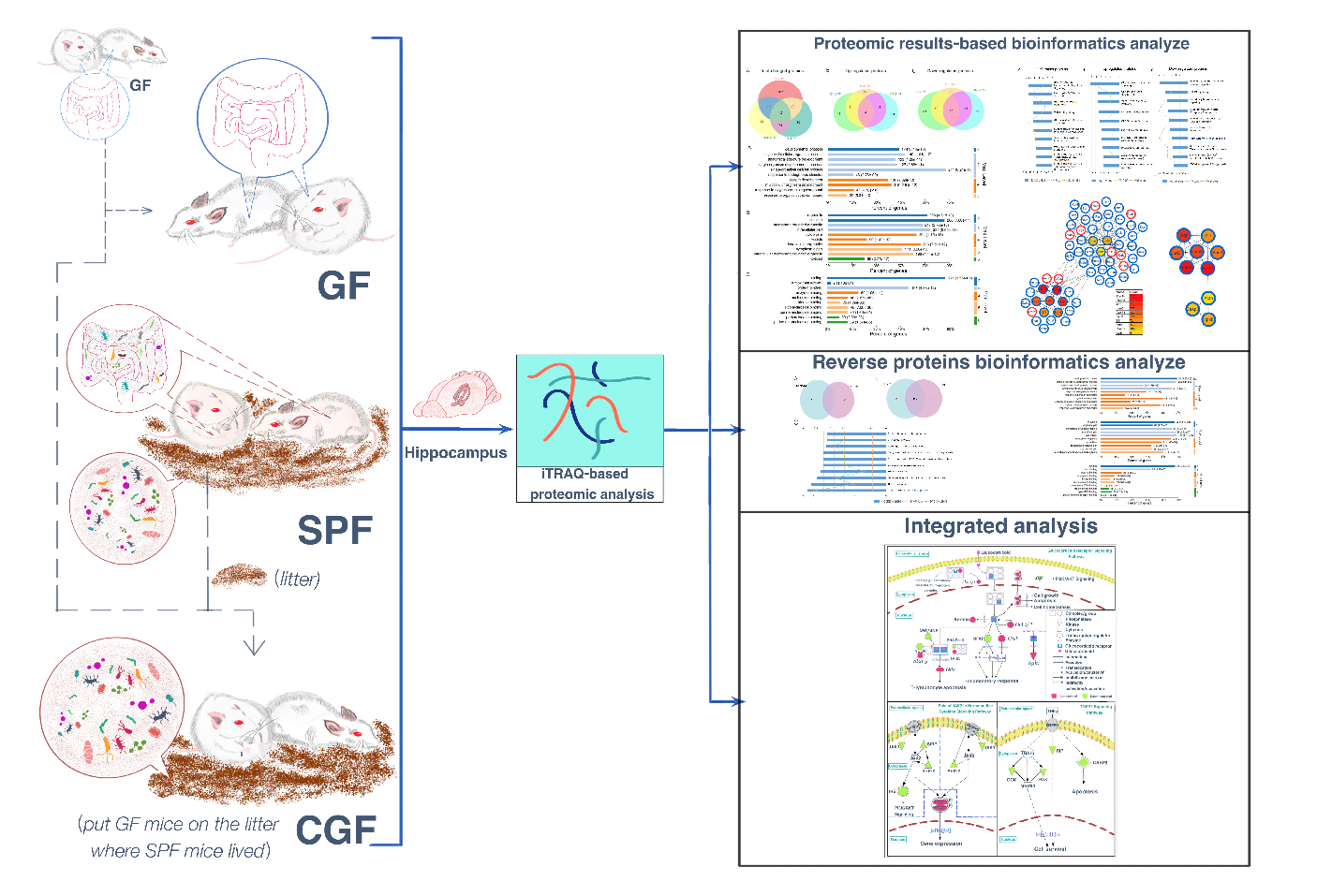Articles
Article Tools
Stats or Metrics
Article
Original Article
Exp Neurobiol 2021; 30(1): 59-72
Published online January 19, 2021
https://doi.org/10.5607/en20055
© The Korean Society for Brain and Neural Sciences
Regulation of Gut Microbiota Disrupts the Glucocorticoid Receptor Pathway and Inflammation-related Pathways in the Mouse Hippocampus
Xuechen Rao1,2†, Lanxiang Liu2,3†, Haiyang Wang2,4†, Ying Yu2†, Wenxia Li2, Tingjia Chai2, Wei Zhou2, Ping Ji4, Jinlin Song4, Hong Wei5* and Peng Xie2,6*
1College of Biomedical Engineering, Chongqing Medical University, Chongqing 400016, 2NHC Key Laboratory of Diagnosis and Treatment on Brain Functional Diseases, The First Affiliated Hospital of Chongqing Medical University, Chongqing 400016, 3Department of Neurology, Yongchuan Hospital of Chongqing Medical University, Chongqing 402160, 4College of Stomatology and Affiliated Stomatological Hospital of Chongqing Medical University, Chongqing 401147, 5Department of Laboratory Animal Science, College of Basic Medical Sciences, Third Military Medical University, Chongqing 400038, 6Department of Neurology, The First Affiliated Hospital of Chongqing Medical University, Chongqing 400016, China
Correspondence to: *To whom correspondence should be addressed.
Peng Xie, TEL: 86-023-68485490, FAX: 86-023-68485111
e-mail: xiepeng@cqmu.edu.cn
Hong Wei, TEL: 86-023-68752051, FAX: 86-023-68752051
e-mail: weihong63528@163.com
†These authors contributed equally to this work.
This is an Open Access article distributed under the terms of the Creative Commons Attribution Non-Commercial License (http://creativecommons.org/licenses/by-nc/4.0) which permits unrestricted non-commercial use, distribution, and reproduction in any medium, provided the original work is properly cited.
Abstract
An increasing number of studies have recently indicated the important effects of gut microbes on various functions of the central nervous system. However, the underlying mechanisms by which gut microbiota regulate brain functions and behavioral phenotypes remain largely unknown. We therefore used isobaric tags for relative and absolute quantitation (iTRAQ)-based quantitative proteomic analysis to obtain proteomic profiles of the hippocampus in germ-free (GF), colonized GF, and specific pathogen-free (SPF) mice. We then integrated the resulting proteomic data with previously reported mRNA microarray data, to further explore the effects of gut microbes on host brain functions. We identified that 61 proteins were upregulated and 242 proteins were downregulated in GF mice compared with SPF mice. Of these, 124 proteins were significantly restored following gut microbiota colonization. Bioinformatic analysis of these significant proteins indicated that the glucocorticoid receptor signaling pathway and inflammation-related pathways were the most enriched disrupted pathways. This study provides new insights into the pathological mechanisms of gut microbiota-regulated diseases.
Graphical Abstract

Keywords: Germ-free, Gut microbiota, Proteomics, Hippocampus, Glucocorticoid receptor pathway, Inflammation-related pathways


